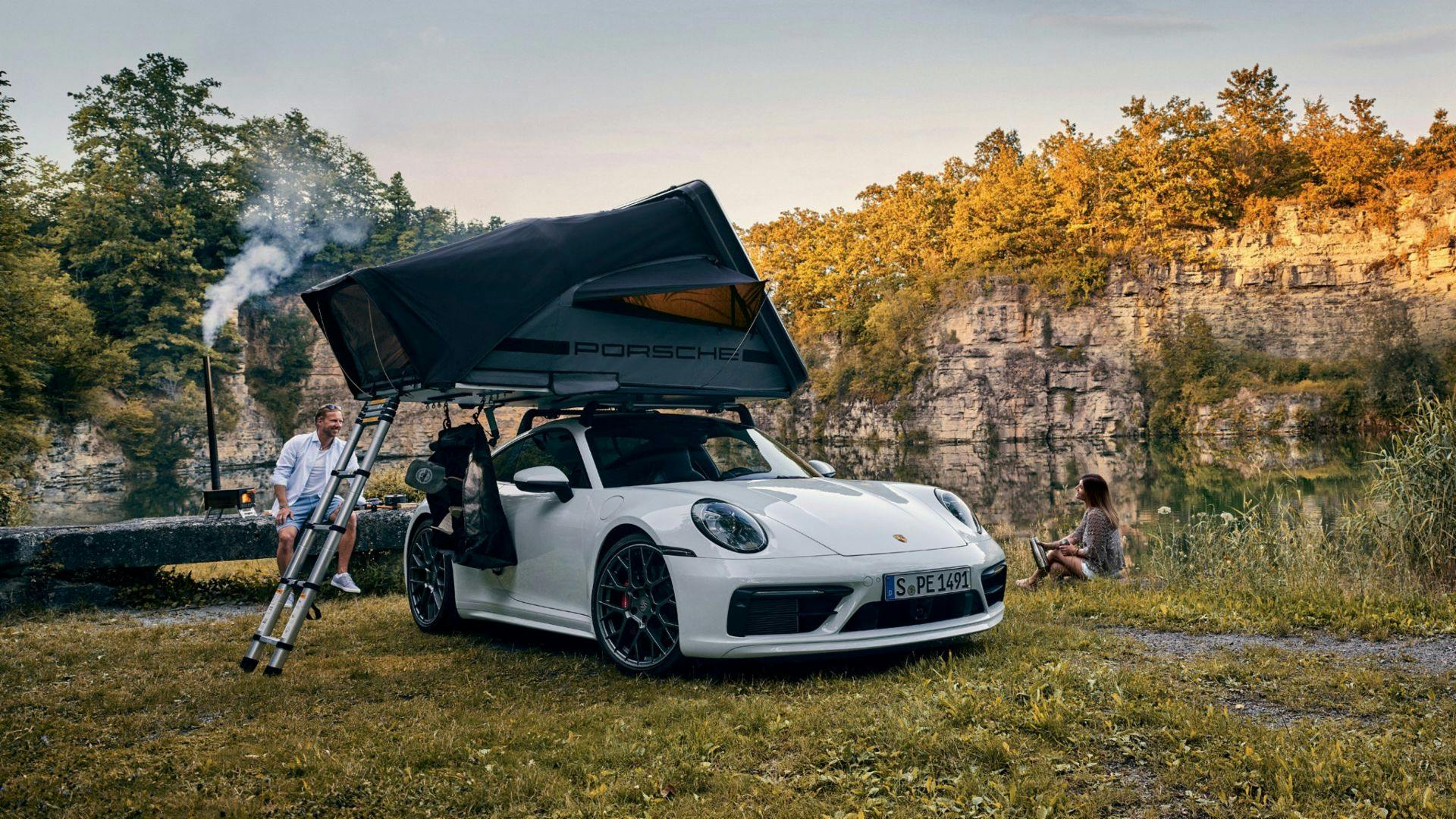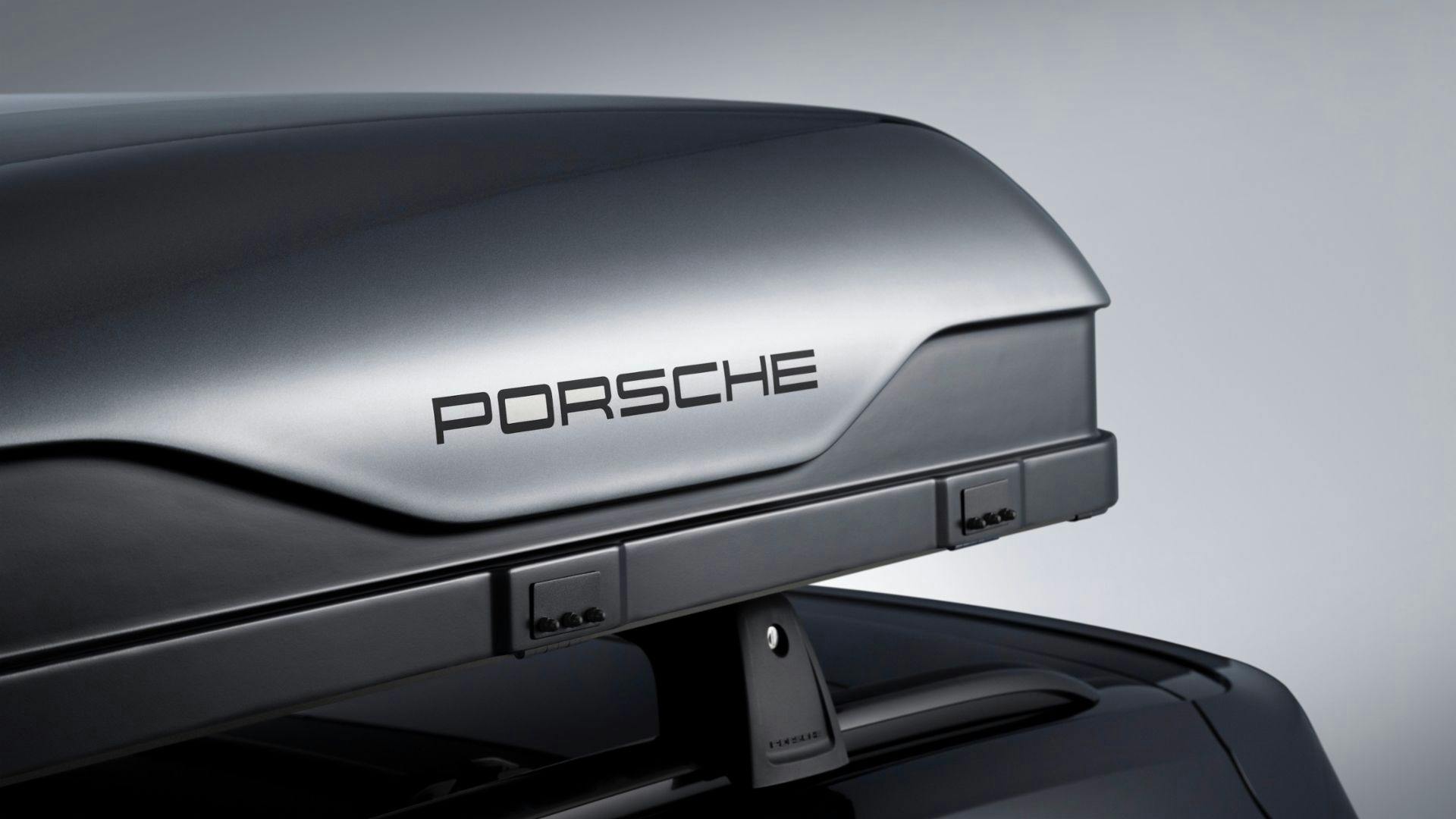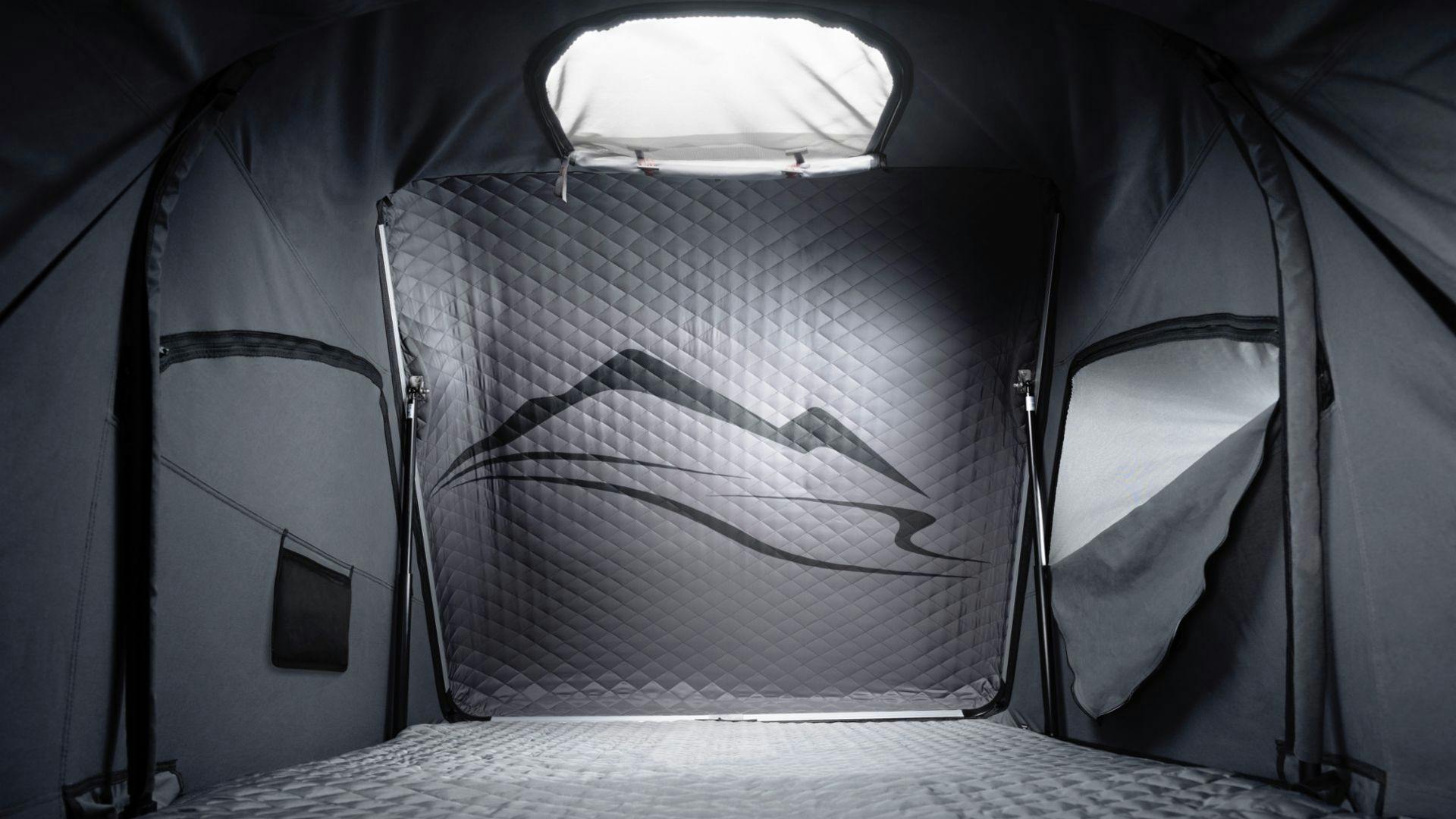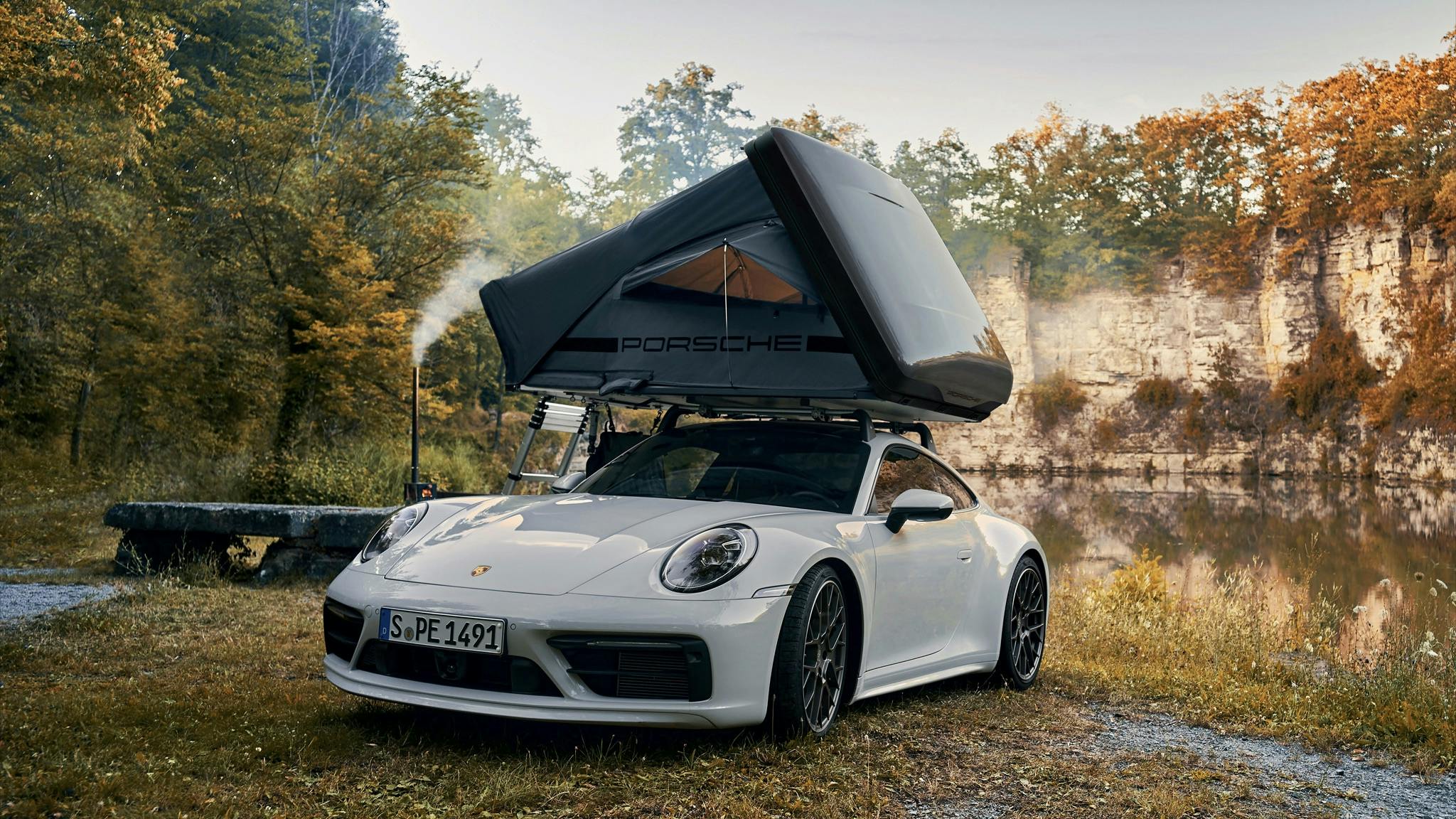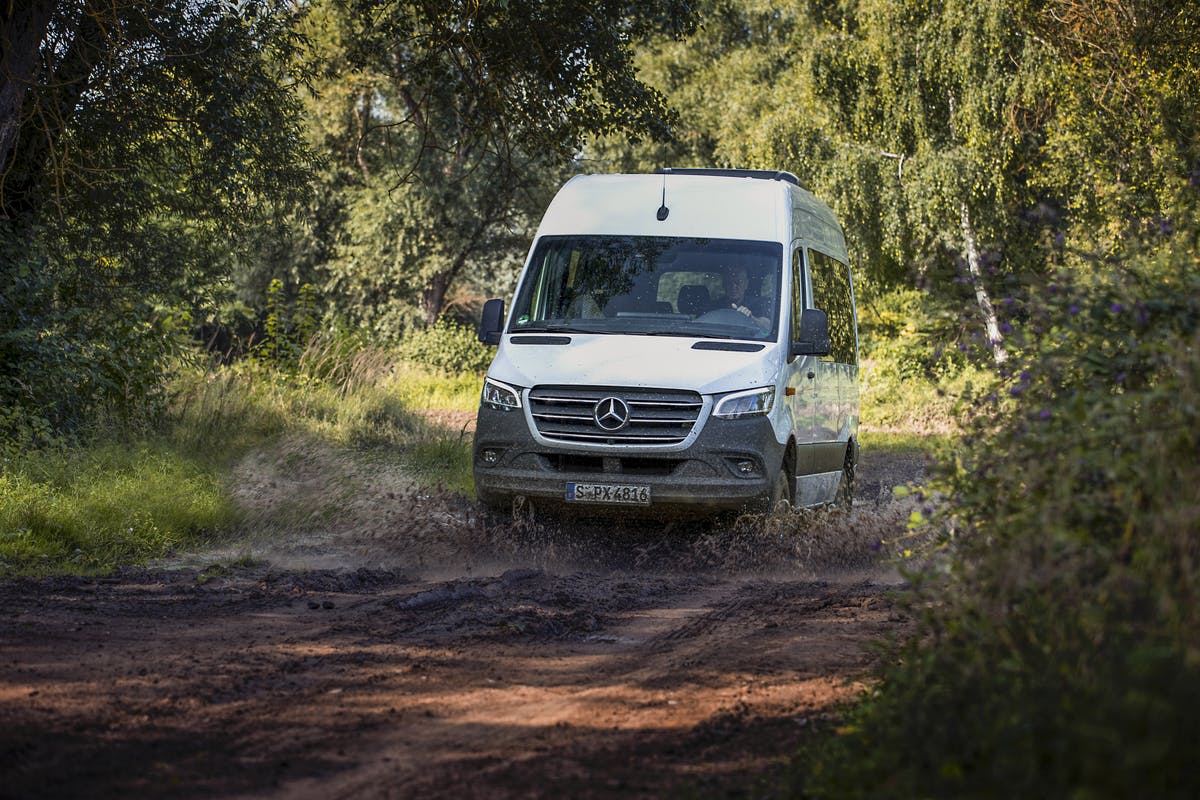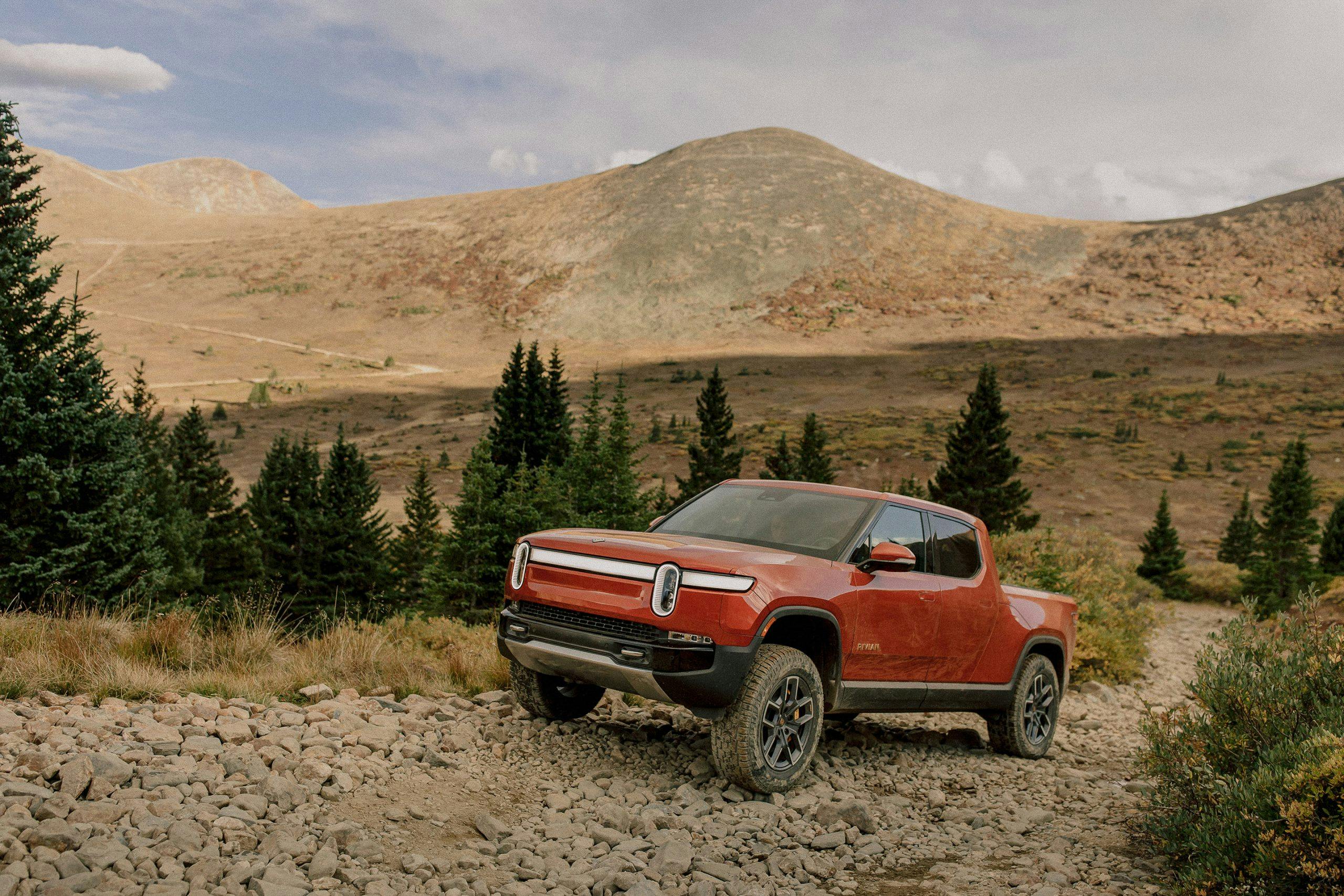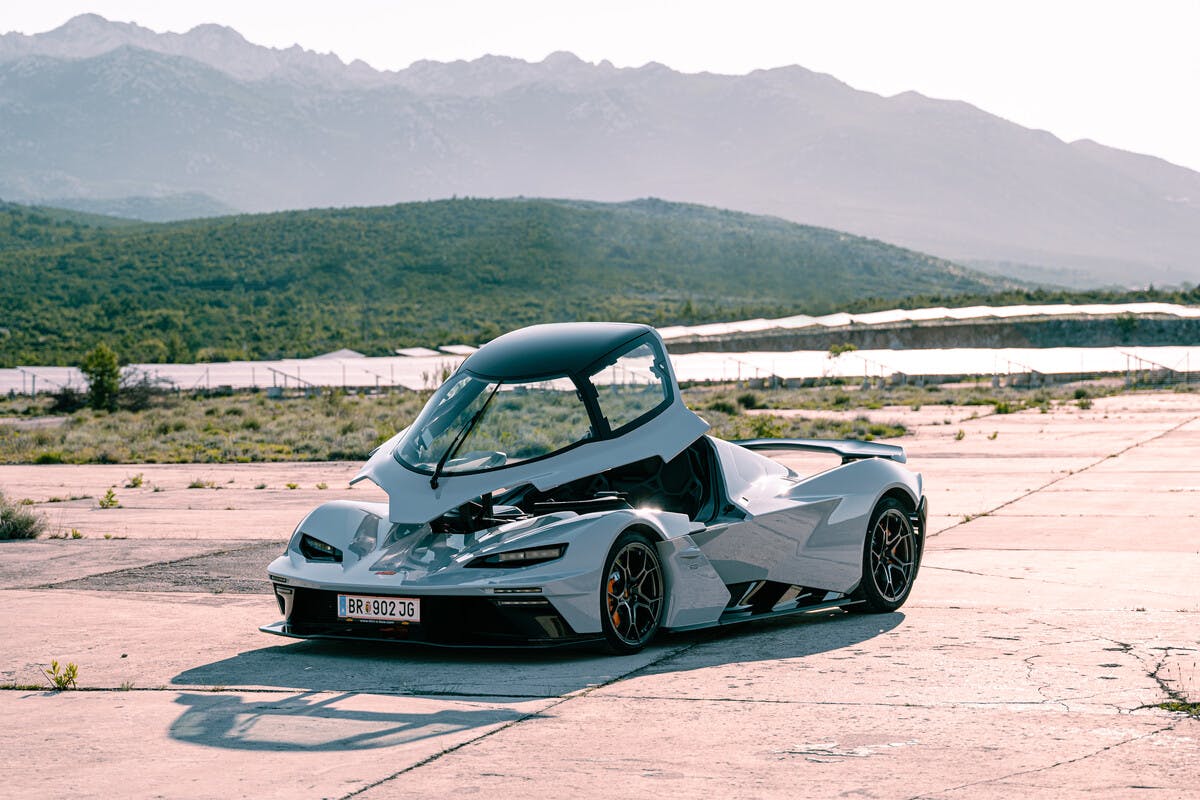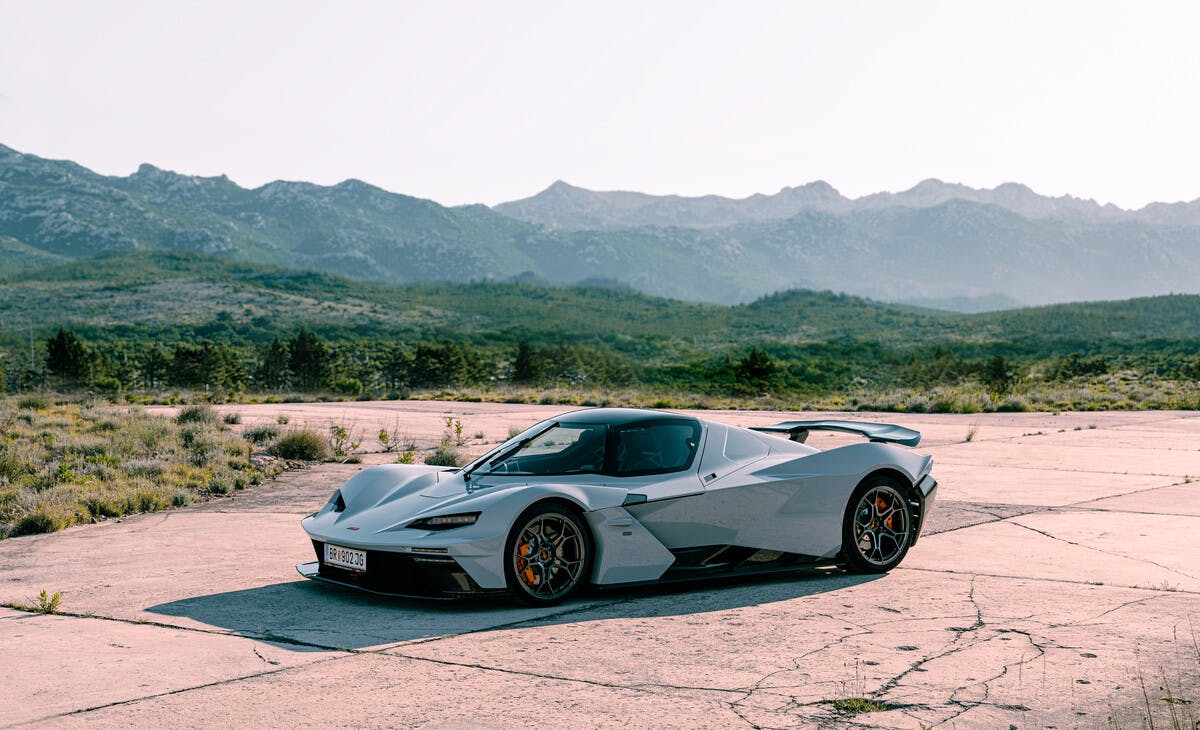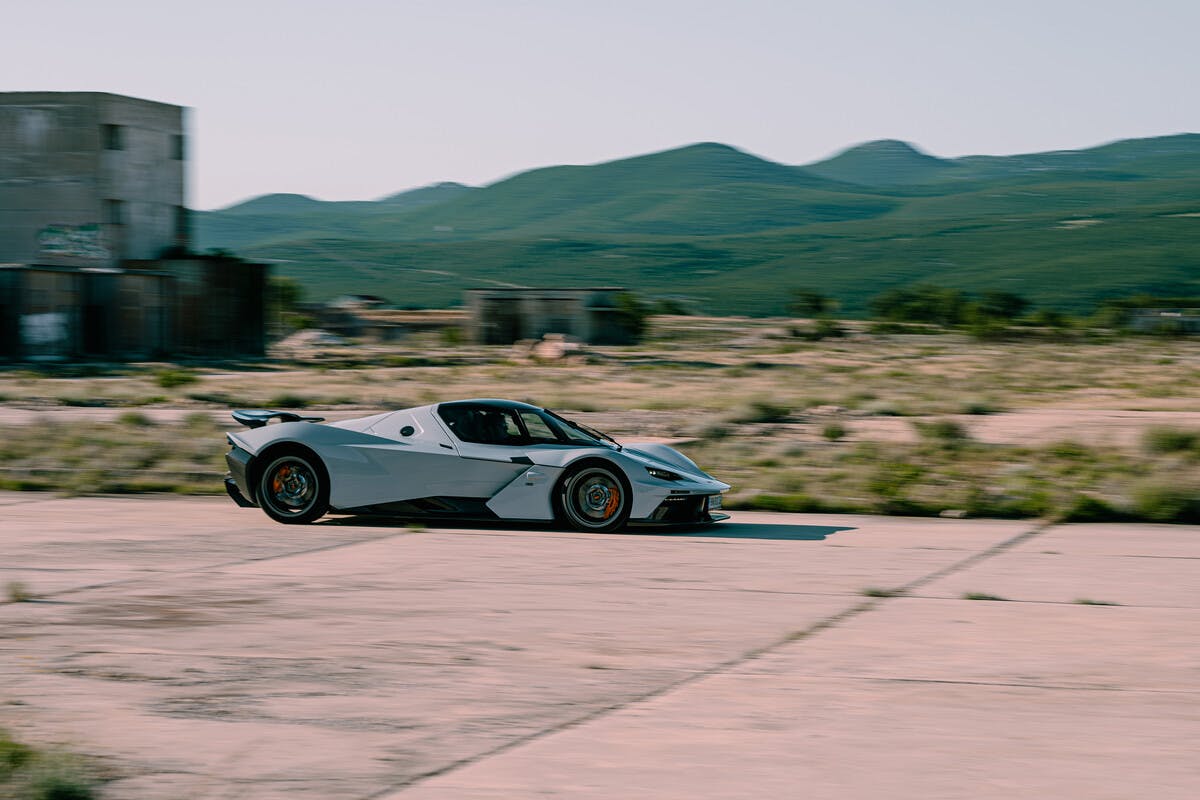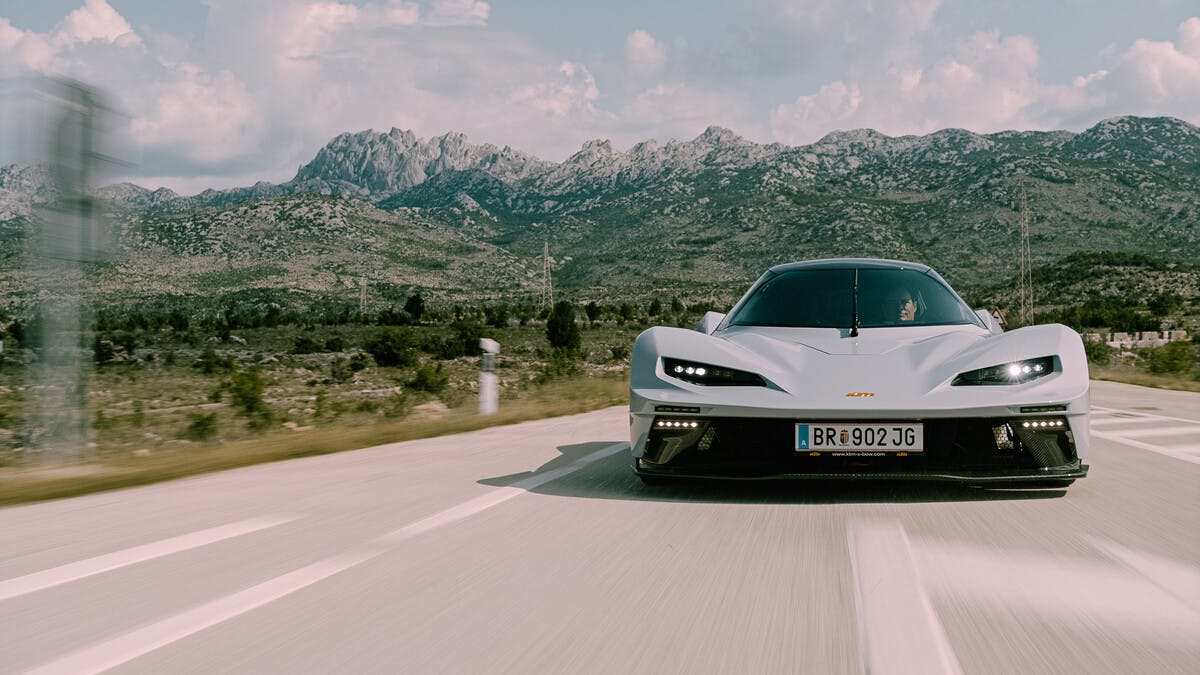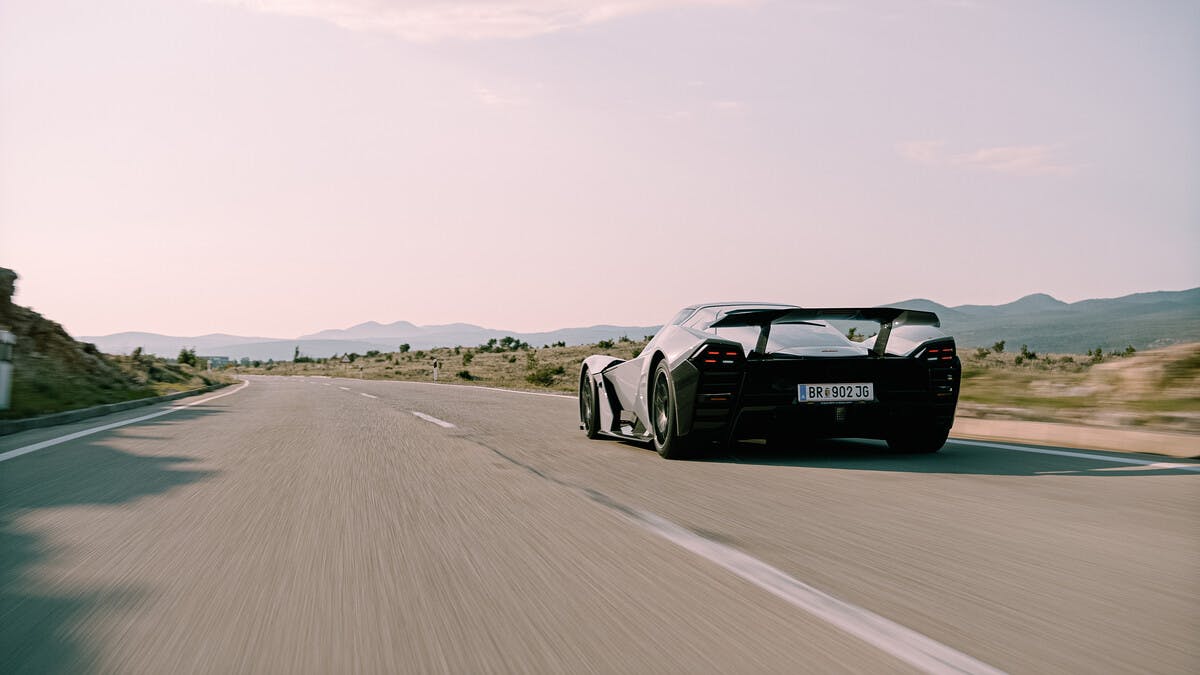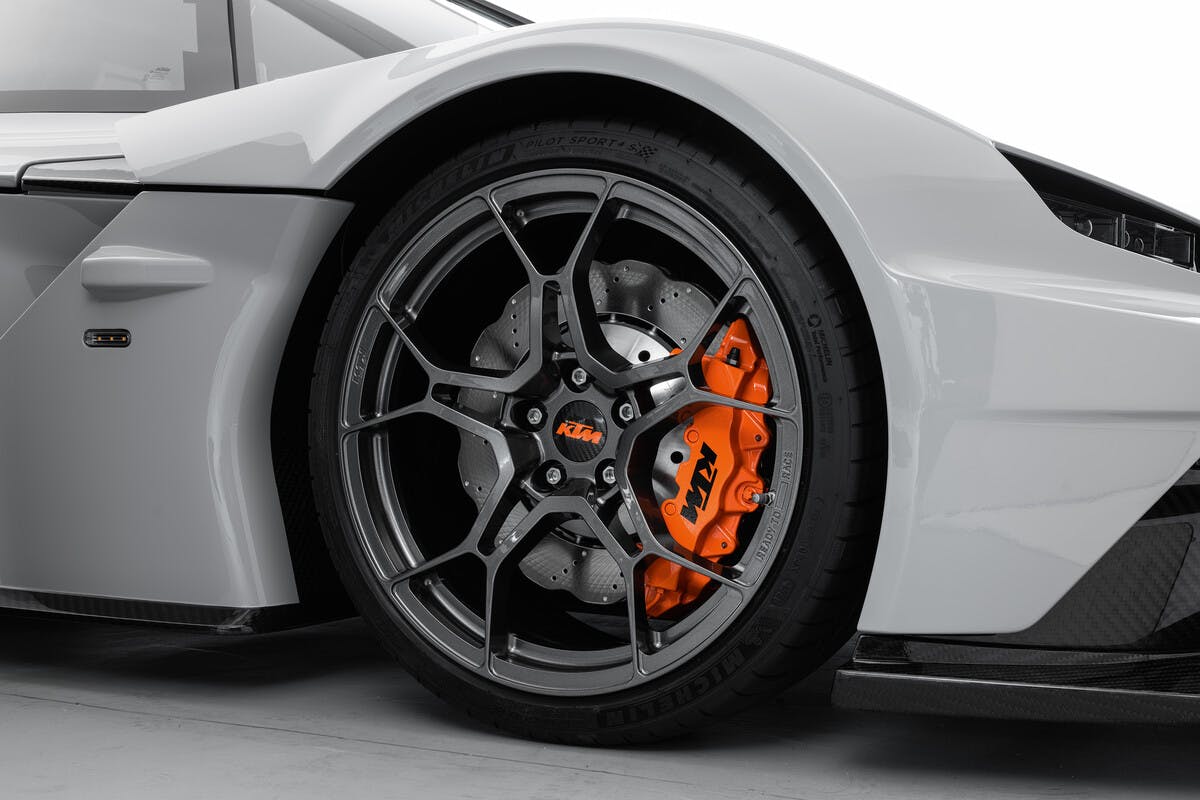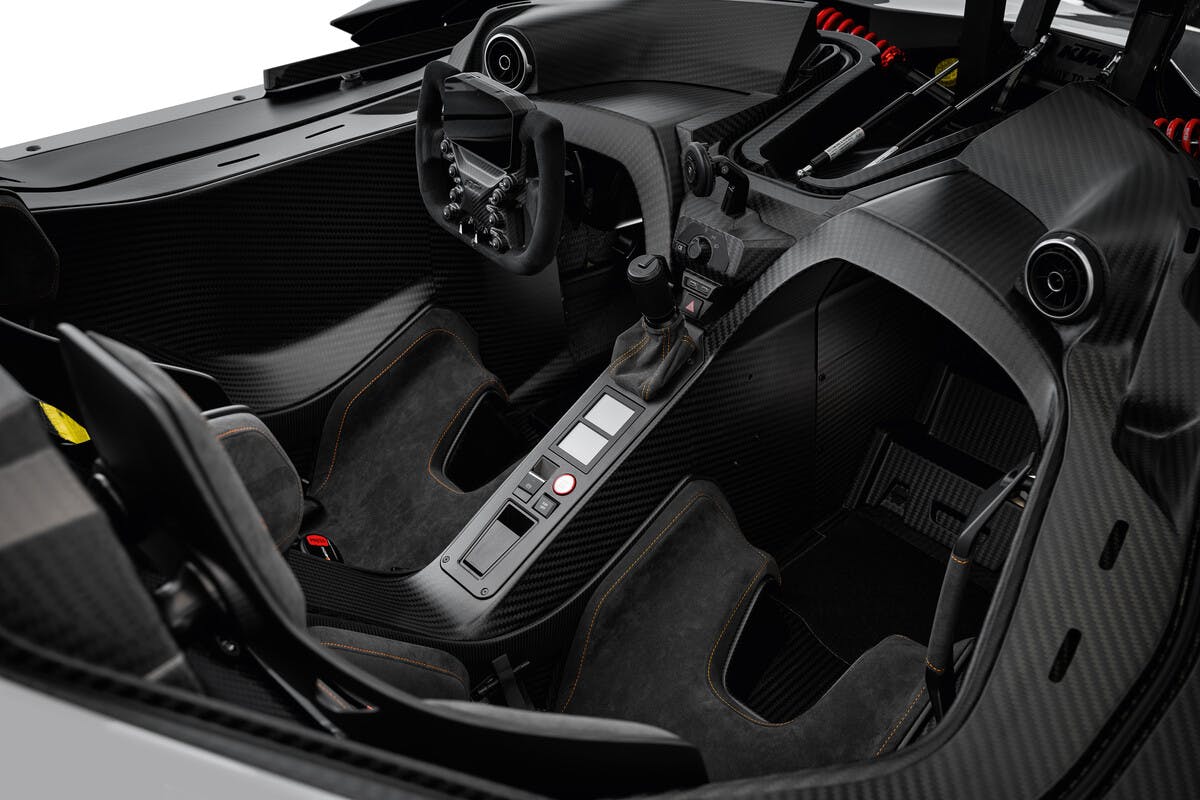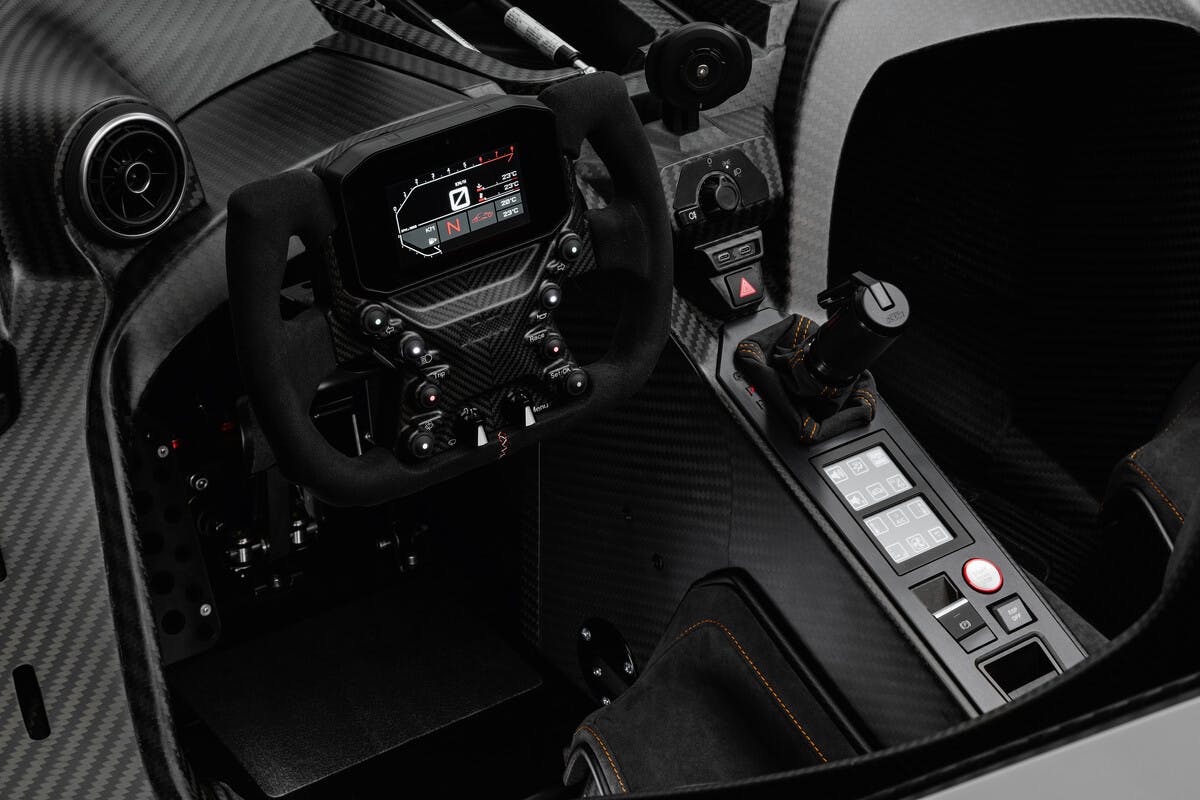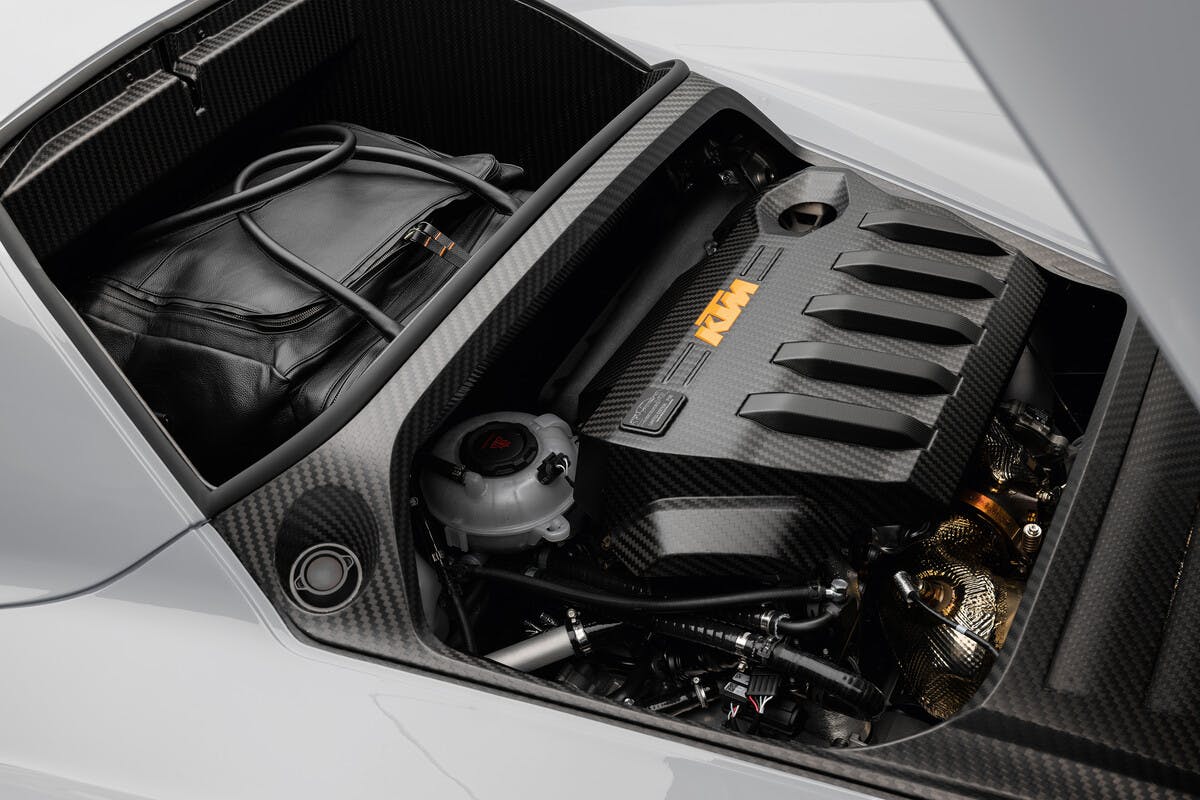Porsche’s rooftop tent, Benz/Rivian van it up, KTM’s 492-hp road-legal monster
Porsche pops up with a rooftop tent for outdoor adventures
Intake: Your Porsche just became more accommodating. The German sports car company has released a roof-mounted two-person tent that can be fitted to a Macan, Cayenne, Panamera, Taycan, and even a 911. Sitting inside an aerodynamic hard shell designed and developed in-house, the tent folds out to create a cosy sleeping area that’s 82.7 inches by 51.2 inches. The walls are breathable cotton with water-resistant zips, and there’s an extra rain cover over the entrance. Two windows let the light in and access is by a foldaway aluminum ladder. A Porsche logo reminds everyone that you’re literally living the brand. The price of an outdoor life with Porsche is $5032 and the tent will be available in November for those brave enough to spend winter nights under canvas.
Exhaust: You can thank the Instagram adventurers posting photos of camp-equipped sports cars in out-of-the-way places for Porsche picking up on this tenting trend, but we wonder how many customers will actually opt for one?—$5000 buys quite a few nights at a Four Seasons, after all. — Nik Berg
EPA fines two Detroit-area suppliers $10M in emissions crackdown
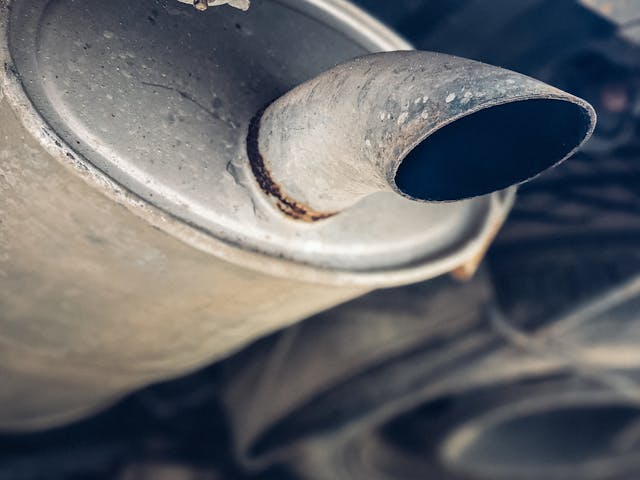
Intake: Two automotive suppliers, Diesel Ops LLC and Orion Diesel LLC, have been ordered by the Environmental Protection Agency to pay $10 million for manufacturing, selling, and installing “defeat devices”—aftermarket hardware and software that bypass a car’s emissions controls. According to the Automotive News, in December 2021 the Detroit-area businesses were found to be in violation of the Clean Air Act, and the proposed $10M civil penalty was granted by the U.S. District Court in Detroit on August 29. Nicholas Piccolo, owner of both companies, was also hit with a $455,925 civil penalty for “failing to respond to an information request pursuant to the Clean Air Act,” as well as a nearly $1 million judgment for fraudulent transfers in violation of the Federal Debt Collection Procedures Act.
Exhaust: Defeat devices were thrust into the automotive spotlight in 2015, when Volkswagen Group was hit with EPA violations that ultimately cost the German automaker billions of dollars in fines and other costs. Although Dieselgate focused the spotlight primarily on VW, the problem is much more widespread—so much so that in 2020, the EPA launched the National Compliance Initiative to address the cheating. The two-year crackdown has resulted in the resolution of 40 civil enforcement cases against makers of defeat devices. While we aren’t always in favor of government regulation, which can sometimes seem heavy handed, we applaud the EPA’s efforts to punish those who skirt the law. — Jeff Peek
Mercedes swipes right on Rivian, looks for a Van-tastic post-Dodge hook up
Intake: Mercedes-Benz and Rivian are getting serious about each other, signing a “Memorandum of Understanding” to become strategic partners and to enter into shared production of electric vans. The move is pretty logical considering Mercedes-Benz’s Sprinter Van efforts in the US; the silver star has hundreds of dealerships nationwide, but no current plans for electrification of their van lineup. Rivian’s efforts to make last-mile delivery vans for Amazon are finally coming to fruition after facing significant hurdles in the early goings. Such hurdles might be easier to surmount with a partner like Mercedes by Rivian’s side. The plan is to create “two large vans, one based on VAN.EA (MB Vans Electric Architecture)” and another based on Rivian’s RLV platform. The tie up is still subject to clearing regulatory barriers, but as Rivian CEO RJ Scaringe said, “we believe that together we will produce truly remarkable electric vans which will not only benefit our customers, but the planet.”
Exhaust: The perk here is that Rivian and Mercedes-Benz will share costs and burn less cash via “operational synergies” through the entire development and production cycles of these vans. We’ve already covered Rivian’s production and financial woes, and their stock price hasn’t had a meteoric, Tesla-like rise since then. They could use a partnership with Mercedes-Benz, as it will likely accelerate the future of both Rivian and Sprinter vans. And it clearly helps Mercedes by offering up well-engineered solutions to battle against Ford’s new E-Transit electric van. There’s no doubt that Sprinter retailers are foaming at the mouth for such a product, and if my time with the R1T is any indication, the next generation of #vanlife owners will be in for a wonderful treat. — Sajeev Mehta
Ford’s BlueCruise can change lanes, hedge for large vehicles

Intake: Ford has unveiled a host of updates for its BlueCruise hands-free driving technology. The updated tech, called BlueCruise 1.2 (Or ActiveGlide 1.2 on Lincoln Products) will roll out first on the Mustang Mach-E, and includes new capabilities such as hands-free lane changing, which is requested by the driver by tapping the turn signal. Another update, called in-lane repositioning, will measure and adjust its positioning to keep it away from vehicles in adjacent lanes, such as large semi-trucks. Predictive speed assist, the third major addition, will automatically adjust the vehicle’s speed as you approach a sharp corner. The feature will focus on smooth deceleration, and it will notify you ahead of time when it’s about to make the change. BlueCruise is available for use on prequalified sections of divided highways all over the country—Ford says that the tech can be used on more than 130,00 miles of roadway currently, and the number is constantly growing. Some 75,000 Ford and Lincoln owners are enrolled in BlueCruise and ActiveGlide currently, and they’ve used the system to collectively traverse more than 16 million miles as of August.
Exhaust: Automatic lane-changing is nothing new in the industry, though a first-comer to Ford. What’s exciting—or perhaps concerning—is how the second two changes accurately reflect human driving behavior. If you can trust your car to yield room to a wandering driver or extra-wide semi, and know when the legal speed limit is unwise for a certain curve, you’ll trust it more, because that’s what you’d do; but a zoned-out driver is just as dangerous. — Nathan Petroelje
KTM’s X-BOW GT-XR is a street-legal racer with a crazy canopy
Intake: KTM describes its new X-BOW GT-XR coupe as “perfect as a daily driver,” but anyone attempting to get behind the wheel will need to be pretty limber to negotiate the car’s fighter-plane canopy roof and high sides. It’s based on the car’s GT2 racer, which competes throughout European sports car series, but adds some civilization in the form of a small trunk, air conditioning, bluetooth phone connectivity, and a glove compartment. Just like the race car, there’s a carbon fiber monocoque clothed in aerodynamic bodywork with an “Air Curtain” ground effect-inducing floor. To avoid scraping it on speed humps the GT-XR comes with a hydraulic lift system for the Sachs suspension. Power comes from the same 2.5-liter turbo five-cylinder motor found in the Audi RS3. In this application, the snorty mill sends 492 hp to the rear wheels via a seven-speed DSG automatic transmission. A motorsports specification limited-slip differential is installed and there’s also a race-spec anti-lock braking system (ABS) and electronic stability programming (ESP). Weighing in at 2,756 lbs and with a top speed of 174 mph, it probably feels as fast as the jets that inspired its cockpit design.
Exhaust: Driving a KTM X-BOW has always been a maverick choice, but now it looks like the actualMaverick‘s choice. Pulling up to your destination and hitting the switch to open the electric canopy, you’ll be as cool as Cruise himself. — NB
Rare Musgo Gasoline sign sells for a record $1.5M

Intake: A rare porcelain Musgo Gasoline from the 1920s, discovered in a Michigan attic, sold for a record $1.5 million (including buyer’s premium) on August 27 at Richmond Auctions’ 2022 Showcase sale in Greenville, South Carolina. The previous world record for an antique advertising sign was $400,000. The 48-inch Musgo sign, considered the “holy grail” by many petroleum collectors, had never before been seen in public. Musgo was the gasoline brand of the Muskegon Oil Company, which was in business from 1927–29, says Scott Benjamin, editor of Petroleum Collectibles Monthly. According to Richmond Auctions, after the Musgo company closed, many of these double-sided signs were used as septic tank lids, causing the down-facing side to deteriorate from the fumes. This one, however, featured two nearly unblemished sides after it was stored away and presumably forgotten until its recent discovery
Exhaust: Petroliana has been increasing in value for years, hand in hand with the tremendous popularity of classic cars, but this sale goes beyond the old saying that a rising tide lifts all boats. There can only be one “best-known example” of anything, and clearly the opportunity to own a Musgo sign of this caliber created a showdown between at least two motivated bidders. Jordan Richmond, founder of Richmond Auctions, said as much: “The $1.5 million price tag speaks to the great condition and uniqueness of this item.” Congratulations to the winner. — JP

